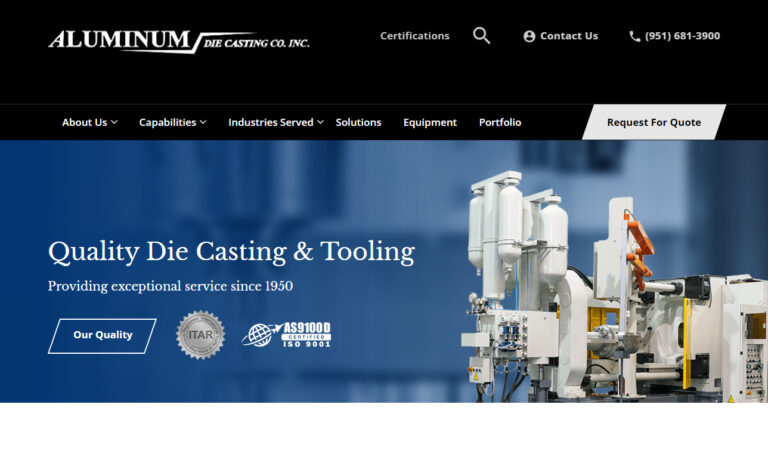Not known Incorrect Statements About Alcast Company
Not known Incorrect Statements About Alcast Company
Blog Article
5 Easy Facts About Alcast Company Described
Table of ContentsUnknown Facts About Alcast Company3 Easy Facts About Alcast Company DescribedThe Facts About Alcast Company RevealedSome Ideas on Alcast Company You Should Know7 Simple Techniques For Alcast CompanyThe Definitive Guide to Alcast Company
The refined difference depends on the chemical material. Chemical Contrast of Cast Light weight aluminum Alloys Silicon promotes castability by decreasing the alloy's melting temperature level and boosting fluidness throughout casting. It plays a critical duty in allowing intricate molds to be loaded accurately. Additionally, silicon adds to the alloy's stamina and use resistance, making it beneficial in applications where resilience is essential, such as auto parts and engine elements.It additionally boosts the machinability of the alloy, making it simpler to refine into finished products. This way, iron adds to the general workability of light weight aluminum alloys. Copper raises electrical conductivity, making it useful in electrical applications. It additionally enhances deterioration resistance and contributes to the alloy's total stamina.
Manganese contributes to the strength of light weight aluminum alloys and improves workability. Magnesium is a lightweight aspect that offers toughness and effect resistance to aluminum alloys.
Alcast Company Fundamentals Explained
It enables the production of lightweight elements with outstanding mechanical residential or commercial properties. Zinc boosts the castability of light weight aluminum alloys and aids regulate the solidification process during spreading. It improves the alloy's strength and hardness. It is often discovered in applications where elaborate shapes and fine information are essential, such as decorative spreadings and specific auto parts.

The primary thermal conductivity, tensile strength, return stamina, and prolongation vary. Amongst the above alloys, A356 has the highest thermal conductivity, and A380 and ADC12 have the lowest.
The Greatest Guide To Alcast Company

In precision casting, 6063 is well-suited for applications where detailed geometries and premium surface area finishes are extremely important. Examples include telecommunication rooms, where the alloy's premium formability enables streamlined and visually pleasing designs while keeping structural integrity. In a similar way, in the Illumination Solutions industry, precision-cast 6063 elements develop sophisticated and reliable illumination fixtures that call for elaborate forms and great thermal efficiency.
It results in a finer surface finish and far better corrosion resistance in A360. Furthermore, the A360 displays remarkable elongation, making it ideal for complicated and thin-walled parts. In precision casting applications, A360 is well-suited for industries such as Customer Electronics, Telecommunication, and Power Devices. Its enhanced fluidness enables for intricate, high-precision elements like smartphone coverings and communication gadget real estates.
Alcast Company for Beginners
Its unique residential or commercial properties make A360 a valuable option for accuracy casting in these sectors, enhancing product durability and quality. Aluminum alloy 380, or A380, is a commonly utilized casting alloy with a number of unique features. It uses excellent castability, making it an excellent option for accuracy spreading. A380 shows good fluidness when molten, ensuring elaborate and detailed molds are precisely reproduced.
In accuracy casting, light weight aluminum 413 beams in the Customer Electronics and Power Equipment markets. It's typically made use of to craft detailed parts like smart device real estates, camera bodies, and power device casings. Its precision is impressive, with tight resistances as much as 0.01 mm, making certain flawless item setting up. This alloy's exceptional deterioration resistance makes it a superb selection for exterior applications, guaranteeing durable, resilient products in the mentioned industries.
Getting The Alcast Company To Work
The aluminum alloy you select will substantially affect both the casting procedure and the residential or commercial properties of the final item. Because of this, you need to make your decision meticulously and take an enlightened technique.
Establishing the most suitable light weight aluminum alloy for your application will suggest evaluating a wide variety of features. The first these details classification addresses alloy features that impact the manufacturing process.
The 3-Minute Rule for Alcast Company
The alloy you choose for die spreading directly impacts numerous elements of the casting procedure, like just how very easy the alloy is to deal with and if it is susceptible to casting flaws. Hot breaking, also called solidification cracking, is a normal die spreading problem for light weight aluminum alloys that can cause interior or surface-level rips or fractures.
Specific aluminum alloys are more at risk to hot cracking than others, and your selection needs to consider this. Another typical flaw located in the die casting of aluminum is die soldering, which is when the actors sticks to the die walls and makes ejection tough. It can damage both the actors and the die, so you should look for alloys with high anti-soldering residential or commercial properties.
Corrosion resistance, which is already a notable feature of aluminum, can vary considerably from alloy to alloy and is a vital characteristic to think about depending on the environmental problems your item will be revealed to (aluminum foundry). Wear resistance is one more property frequently looked for in aluminum products and can set apart some alloys
Report this page